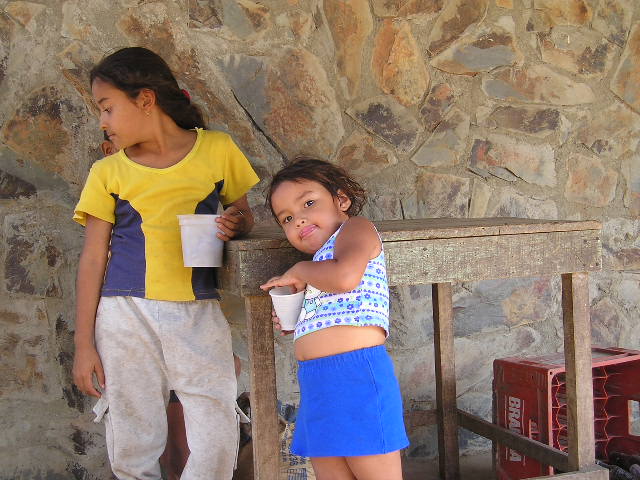Thirty-second Sunday in Ordinary Time
Gerry Lee
November 10, 2019
Second Maccabees 7:1-2,9-14; Psalm 17: 1, 5-6, 8, 15; Second Thessalonians 2:16-3:5; Luke 20: 27-38 or 20: 27, 34-38.
Gerry Lee, former Maryknoll Missioner and former director of MOGC, reflects on the steadfast solidarity he witnessed among his neighbors in Venezuela.
“May the Lord direct your hearts to the love of God and the steadfastness of Christ,” St. Paul writes in his letter to the Thessalonians. Sometimes when we experience hardship, God directs our hearts to her steadfast love, and to the faithful presence of Jesus in our lives.
In my family’s first assignment as Maryknoll lay missioners we lived in a hillside barrio of Caracas, Venezuela: 40,000 people in 20 terraces of tin and cardboard shacks and crumbling cement “projects,” without running water and open sewers running down the dirt streets. When we could get water, we’d fill 50- gallon drums that we kept in our kitchen, and hope that it would last until the next coming of the water. You learned to use every bucket of water several times before it went down the toilet.
At the same time the same government (under President Rafael Caldera) that didn’t provide running water to poor communities like ours was granting contracts to foreign companies to mine in the Amazon jungle. The mining operations use giant hydraulic hoses that employ huge amounts of water to strip the surface soils for gold. In their liturgies and bible reflections, the people in our barrio would denounce the greed and government corruption that was spoiling their natural resources while imposing hardship on those who are poor. They implored, as St. Paul does in today’s reading from Thessalonians: “Pray for us…that we may be rescued from wicked and evil people, for not all have faith.”
In our first Christmas in the barrio we had no water for over three weeks and families were desperate. Water finally came a few days before Christmas, in the middle of the night: We were woken up by shouts of joy and the sound of water gushing out of the communal spigot on our terrace. The whole community got up in the dark and starting connecting garden hoses to the spigot, extending the hoses to neighbors’ houses to fill up water barrels. A diverse community of Venezuelans of African descent, light-skinned European descendants, immigrants from Trinidad and refugees from Colombia; our barrio came together that night to make sure every household got the water they needed. Teenagers were carrying buckets of water up to elderly neighbors living on the fourth floor of the housing project. Mothers started making arepas, the Venezuelan cornbread, for breakfast for all the workers. Everyone got wet and got happy. What a lesson of solidarity in the face of hardship it was for our family!
In today’s Gospel, the Sadducees try to trick Jesus with a complicated legal question about the afterlife. Jesus ignores their deception and responds with a beautiful image of the Resurrection, where the faithful “are like angels, being children of God and children of the resurrection.” When we come together as church – as a community of people from all races, economic status, and life circumstances – we live this vision of being the children of God, the children of the resurrection.
It was this vision of the church that inspired the fathers of the Second Vatican Council to open their reflection on “The Church in the Modern World” with the stirring words: “The joy and hope, the grief and anguish of the men and women of our time, especially the poor…are the joy and hope, the grief and anguish of the followers of Jesus. “ (Gaudium et Spes, 1)
Pope Francis echoed those words recently when he spoke of the ideal of a missionary, poor church: “We have to be a leavening of life and love….listen to the needs, desires and disappointments, the despair and hope. We must restore hope to young people, help the old, be open to the future, spread love. Be poor among the poor. We need to include the excluded and preach peace.”
When we are weighed down by our hardships and worries, our faith offers this vision of Jesus, who St. Paul reminds us, “through grace gave us eternal comfort and good hope.” When we encounter immigrants with strange customs and neighbors with diverse opinions, we are called to Pope Francis’ vision of an inclusive church that is a leavening of life and love. In solidarity with the poor and with those who live on the margins of society, we find the precious gift of the diversity of God’s people and the steadfast presence of Jesus amongst the children of the resurrection.

